Premium Only Content
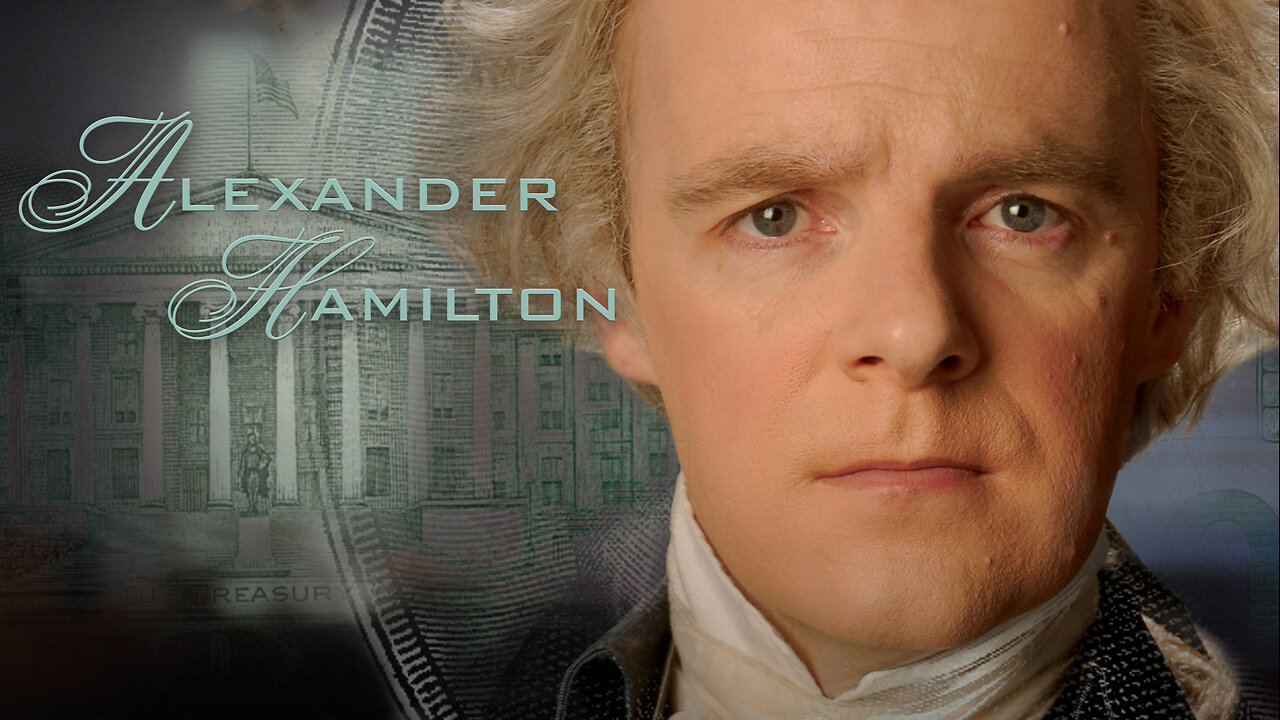
PBS American Experience: Alexander Hamilton
This Founding Father came to America alone at age 15. He fought at Washington's side in the Revolution, helped ensure the ratification of the Constitution, and saved the fledgling United States from financial ruin. He died in a tragic duel with his political rival, Aaron Burr.
Alexander Hamilton was born on January 11, 1757, in Nevis, British West Indies. His father, James Hamilton, was a Scottish trader. His mother, a French woman named Rachel Fawcett Lavine, was married to another man, John Michael Lavine, at the time of Alexander's birth. She had been cast out of Mr. Lavine's home for adultery. When Alexander was still an infant, James Hamilton abandoned his family. They struggled to survive.
Owing to his intelligence and willingness to work, Alexander Hamilton quickly rose above his station. At age 11, he went to work as a clerk in a countinghouse owned by a St. Croix businessman, Nicholas Cruger. Impressed with the boy, Cruger joined with a minister, the Reverend Hugh Knox, to send young Hamilton to study in America.
In the fall of 1773, at age 16, Hamilton entered King's College, which would later be renamed Columbia. In 1774, as the Colonies swept toward revolution, he left school to begin a career in politics. That year he wrote "A Full Vindication of the Measures of Congress," which defended the First Continental Congress' proposal to embargo trade with Great Britain.
In 1776, after the Revolutionary War began, Hamilton received a captain's commission in the Continental Army. He raised an artillery company of his own and proved his bravery at the Battles of Long Island, White Plains, and Trenton.
George Washington was among those who recognized Hamilton's leadership capabilities. In 1777 Hamilton accepted a position on Washington's staff. At the time of Hamilton's appointment, the Army was plagued by poor organization and a lack of financing. The prescient Hamilton, realizing that these problems would also plague the liberated colonies unless they were solved, began to search for solutions.
Alexander Hamilton served admirably throughout the war. During this time he found love in the person of Elizabeth Schuyler, daughter of a powerful New York landholder and military officer, Philip Schuyler. Alexander and Elizabeth married in 1780. For the most part, their marriage was a happy one, but later it would suffer from Hamilton's infidelity.
Following the war, Hamilton passed the New York bar and set up practice in New York City. Among his first clients were Loyalists, people who kept their allegiance to the King of England during the war. At the war's end, many New York rebels returned to find their homes and businesses occupied by Loyalists. Under the Trespass Act, these people could sue Loyalists for compensation for the use of and damage to their property. Hamilton's powerful defense of Loyalists helped establish principles of due process and ensure the Trespass Act's repeal.
In 1787 delegates met in Philadelphia to repair the weak Articles of Confederation, which were failing to hold the union together. Hamilton, a New York delegate, believed that the solution to the problem involved creating a stronger central government and providing a steady revenue stream for this government.
Although Hamilton had little influence on the writing of the Constitution, he was a driving force for its ratification. Along with John Jay and James Madison, Hamilton wrote "The Federalist," a series of essays that defended the yet-to-be-approved Constitution. Hamilton composed more than two-thirds of the 85 essays, which were published in New York newspapers in 1787-88. Later in 1788, Hamilton attended the New York ratification convention. Using his considerable skill as an orator, he turned back an overwhelming Anti-Federalist tide to win ratification.
Upon his election in 1789, George Washington chose Alexander Hamilton as the nation's first Treasury secretary. Hamilton crafted a monetary policy that undoubtedly saved the nation from ruin. Among the features of the Hamilton plan were the payment of federal war bonds, the assumption of state debts by the federal government, and the creation of a mechanism for collecting taxes.
During his tenure as Treasury secretary, Hamilton clashed repeatedly with another cabinet member, Thomas Jefferson. Hamilton favored a powerful central government while Jefferson feared it; Hamilton favored closer relations with Britain, and Jefferson, with France. The men would both resign their Cabinet posts before the end of Washington's first term. They would remain lifelong political enemies.
Hamilton might have risen to the presidency if not for a scandal in 1797. A pamphlet published that year revealed Hamilton's affair with a woman named Maria Reynolds and linked him to a scheme by Reynolds' husband to illegally manipulate federal securities. To prove his innocence, Hamilton resorted to publishing love letters he had written to Maria Reynolds. This cleared Hamilton of financial impropriety, but badly damaged his reputation. The scandal did not stop George Washington from appointing Hamilton acting commander of the U.S. Army in 1798 when the country was on the brink of war with France.
In 1800 Hamilton's old enemy, Aaron Burr, obtained and published a confidential document Hamilton had written that was highly critical of Federalist John Adams, then president. Publication of the article created a rift in the Federalist party, helping Republicans Thomas Jefferson and Aaron Burr to win the race for presidency. But since the two men tied in electoral votes, it was up to Congress to decide the outcome. Hamilton lobbied Congressional federalists to vote for Jefferson, to little effect. Still, Congress chose Jefferson as president. Burr assumed the vice presidency.
In the New York gubernatorial race of 1804, Hamilton again clashed with Aaron Burr. Burr ran as an independent. Hamilton feared that Burr would eclipse him in the Federalist leadership. He spoke out against the vice president, and New York Republicans George and DeWitt Clinton led a brutal media campaign against Burr. The Clintons, not Hamilton, were responsible for Burr's defeat.
Still, after reading in a newspaper that Hamilton had expressed a "despicable opinion" about him during the campaign, Burr challenged Hamilton to a duel. They met on the dueling grounds at Weehawken, New Jersey on July 11, 1804. Both men fired their pistols; only Hamilton was hit. He died of his wounds the next day.
-
 49:35
49:35
Donald Trump Jr.
18 hours agoA New Golden Age: Countdown to Inauguration Day | TRIGGERED Ep.202
222K197 -
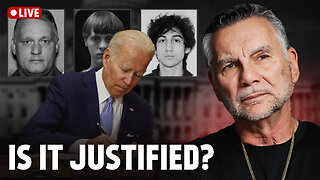 1:14:34
1:14:34
Michael Franzese
16 hours agoWhat's Behind Biden's Shocking Death Row Pardons?
86.4K49 -
 9:49
9:49
Tundra Tactical
15 hours ago $26.55 earnedThe Best Tundra Clips from 2024 Part 1.
154K11 -
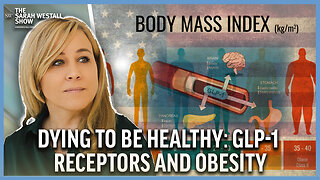 1:05:19
1:05:19
Sarah Westall
15 hours agoDying to Be Thin: Ozempic & Obesity, Shedding Massive Weight Safely Using GLP-1 Receptors, Dr. Kazer
127K32 -
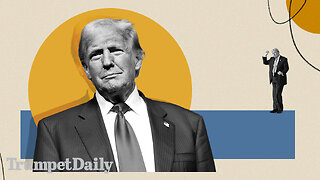 54:38
54:38
LFA TV
1 day agoThe Resistance Is Gone | Trumpet Daily 12.26.24 7PM EST
86.2K12 -
 58:14
58:14
theDaily302
1 day agoThe Daily 302- Tim Ballard
79.8K14 -
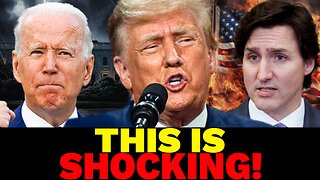 13:22
13:22
Stephen Gardner
18 hours ago🔥You'll NEVER Believe what Trump wants NOW!!
127K353 -
 54:56
54:56
Digital Social Hour
2 days ago $13.96 earnedDOGE, Deep State, Drones & Charlie Kirk | Donald Trump Jr.
73.5K8 -
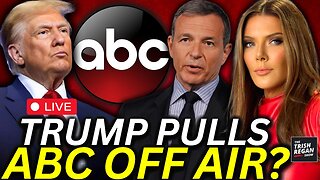 DVR
DVR
The Trish Regan Show
19 hours agoTrump‘s FCC Targets Disney CEO Bob Iger Over ABC News Alleged Misconduct
76.6K45 -
 1:48:19
1:48:19
The Quartering
20 hours agoElon Calls White People Dumb, Vivek Calls American's Lazy & Why Modern Christmas Movies Suck!
156K118